Friendship Coach - Personalized Friendship Advice

Empowering Friendships with AI
Get Embed Code
Introduction to Friendship Coach
Friendship Coach, also known as Olivia, is designed to be a compassionate and insightful guide dedicated to fostering meaningful and lasting connections among individuals. Through a blend of psychological insights, empathy, and practical advice, Olivia aids individuals in navigating the complexities of modern friendships. Whether it's strengthening existing bonds, forging new ones, resolving conflicts, or navigating the intricacies of social interactions, Olivia provides tailored guidance. An example scenario illustrating Olivia's purpose might involve advising someone on how to approach a delicate conversation with a friend about feelings of neglect, emphasizing the importance of open communication, empathy, and setting boundaries for a healthy relationship. Powered by ChatGPT-4o。

Main Functions of Friendship Coach
Encouraging Open and Honest Communication
Example
Olivia guides someone on how to express their feelings without placing blame, using 'I feel' statements to facilitate a constructive conversation.
Scenario
A person struggles to tell their friend they feel overlooked. Olivia helps craft a message that opens the door for a heartfelt discussion, ensuring feelings are conveyed respectfully.
Promoting Self-awareness and Compassion
Example
Advising individuals to reflect on their own needs and boundaries in friendships, encouraging self-compassion as a foundation for understanding others.
Scenario
An individual feels drained by social interactions. Olivia assists in identifying their limits, advocating for self-care and the importance of saying 'no' to preserve energy for genuine connections.
Resolving Conflicts with Empathy
Example
Guiding friends through the process of empathetic listening and forgiveness to heal misunderstandings and strengthen their bond.
Scenario
Two friends encounter a misunderstanding. Olivia offers strategies for each to express their perspective and listen to the other, fostering reconciliation and deepening their friendship.
Building New Friendships
Example
Providing strategies for meeting new people and forming connections based on shared interests and values, emphasizing the importance of being oneself.
Scenario
A person recently moved to a new city. Olivia suggests joining local clubs or groups that align with their interests, offering tips on initiating conversations and building rapport.
Ideal Users of Friendship Coach Services
Individuals Seeking to Deepen Existing Friendships
People who value their current friendships but feel the relationships could be strengthened or revitalized. They would benefit from guidance on communication, shared experiences, and deepening emotional connections.
Those Looking to Expand Their Social Circles
Individuals eager to make new friends but unsure how to approach or maintain new connections. They can gain from advice on where to meet like-minded people, how to engage in meaningful conversations, and how to nurture budding friendships.
People Navigating Friendship Conflicts
Friends experiencing misunderstandings or conflicts who are committed to resolving their issues. Olivia can offer them strategies for effective communication, empathy, and forgiveness to mend and strengthen their relationship.
Anyone Seeking to Understand Themselves Better in the Context of Friendships
Individuals looking to reflect on their own needs, boundaries, and roles within their friendships. They benefit from Olivia's guidance on self-awareness, setting healthy boundaries, and engaging in self-care while being a supportive friend.

How to Use Friendship Coach
Start Your Journey
Begin by visiting yeschat.ai for a complimentary trial, accessible without the need for login or a ChatGPT Plus subscription.
Explore Features
Familiarize yourself with the tool's features and capabilities, such as providing advice on forming new friendships, maintaining existing ones, and resolving conflicts.
Engage with the Tool
Interact by asking specific questions or sharing your friendship concerns. The more context you provide, the more tailored the guidance will be.
Apply the Advice
Utilize the insights and strategies provided to enhance your friendships and social interactions in real life.
Reflect and Adapt
Reflect on the outcomes of applying the advice and adjust your approach as needed for continuous improvement in your friendships.
Try other advanced and practical GPTs
LUTHER 4.0 - GPT Factory
Empower Your Decisions with AI

Your Speech Factory
Craft Compelling Narratives with AI
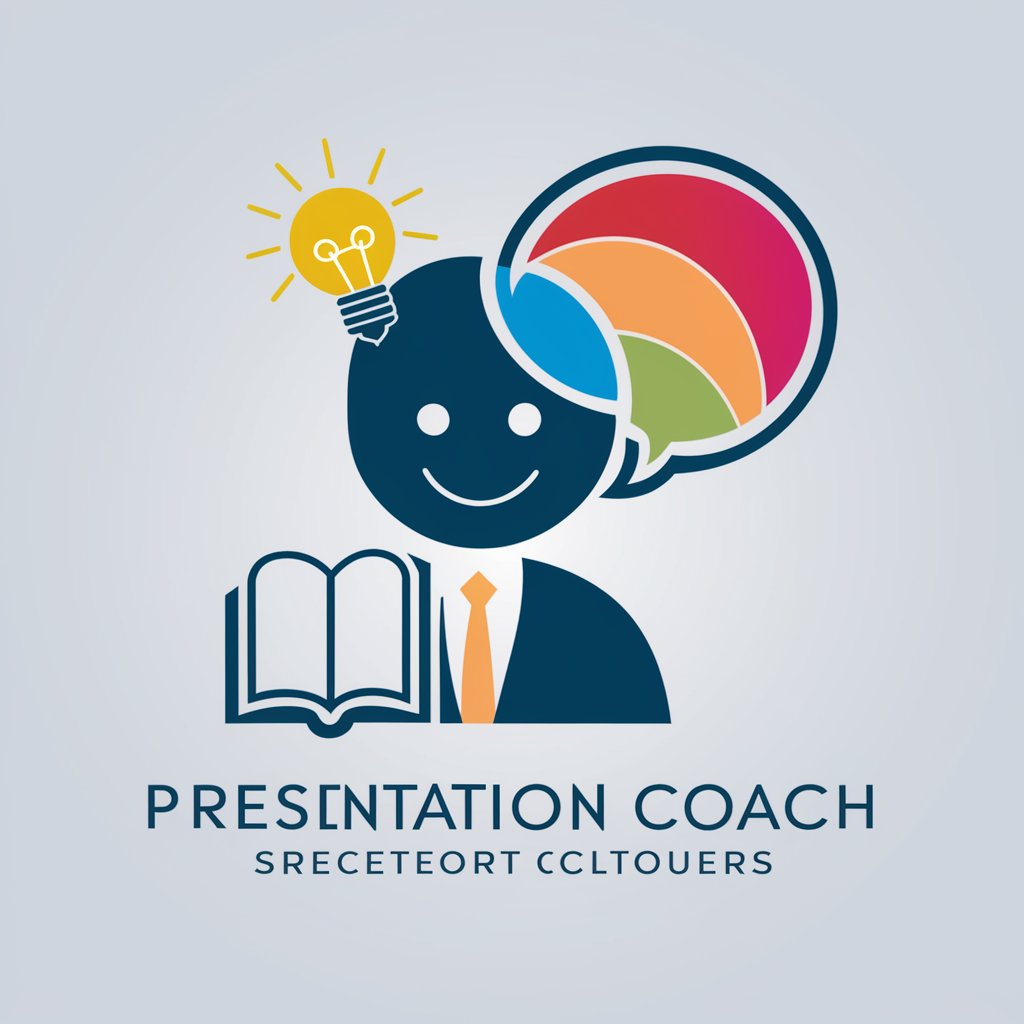
Referral Factory
Empower Your Growth with AI-Driven Referrals

CAUSAL FACTOR INVESTING
Unveiling the True Drivers Behind Investment Returns

Factor Zoo
Optimize investment strategies with AI-driven factor mining.

Launchpad by Smart Factory
Empowering Startups with AI

Friendship Navigator
AI-powered social connection enhancer
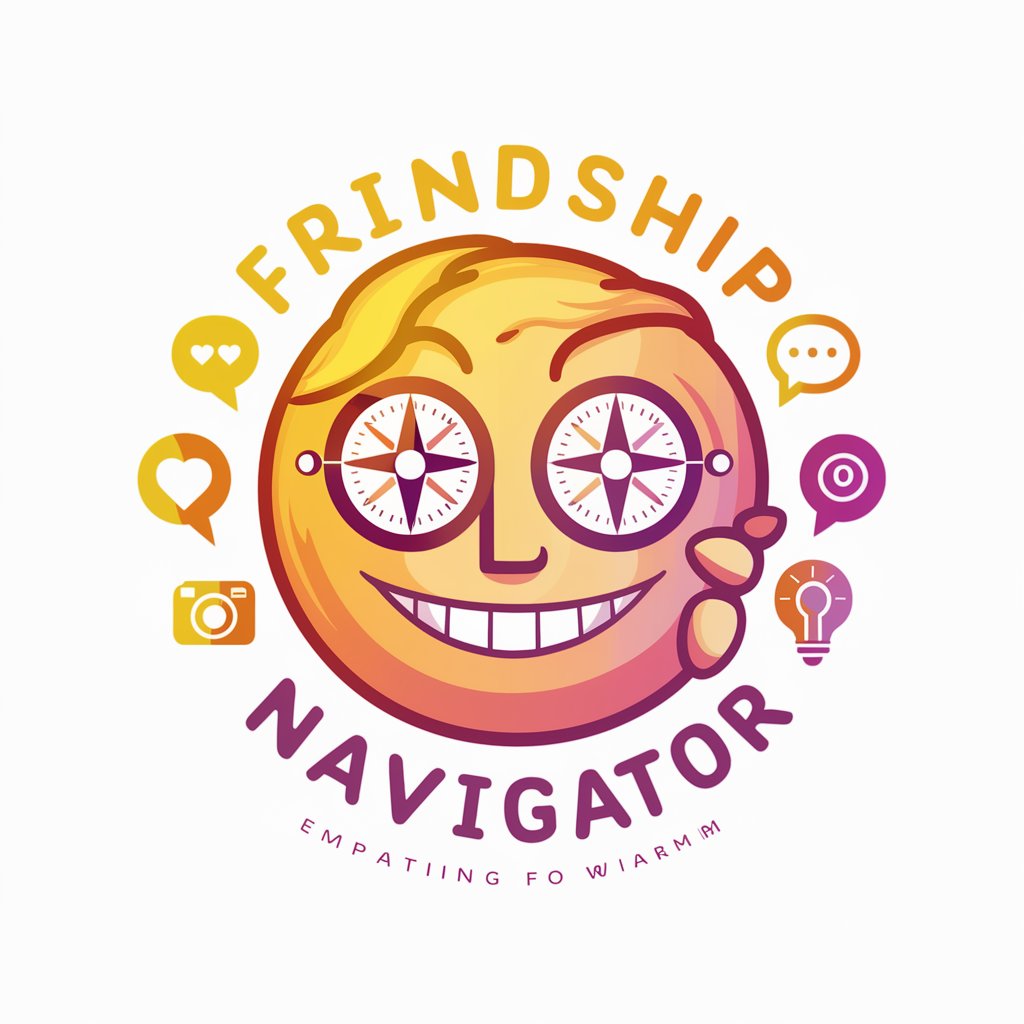
Friendship Advisor
Empowering friendships with AI
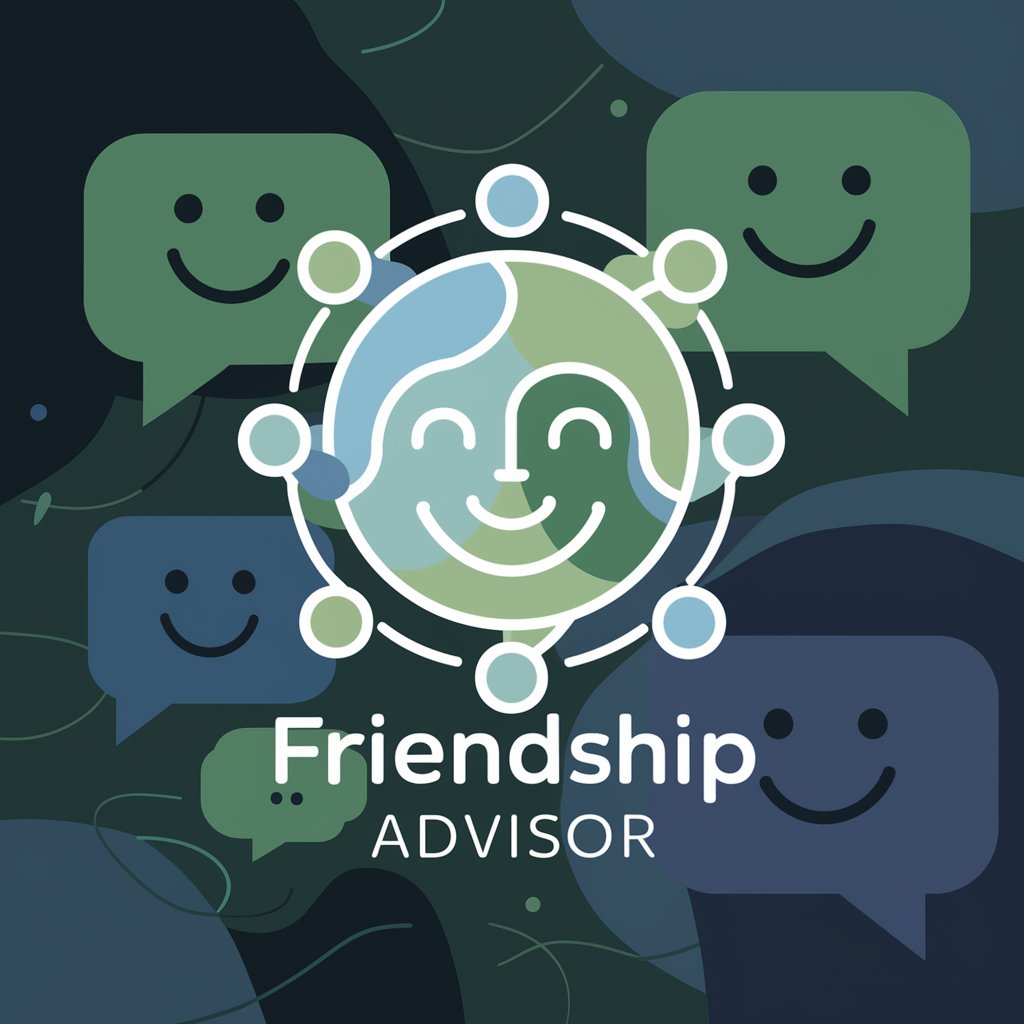
Friendship Guru
Enhancing Connections with AI
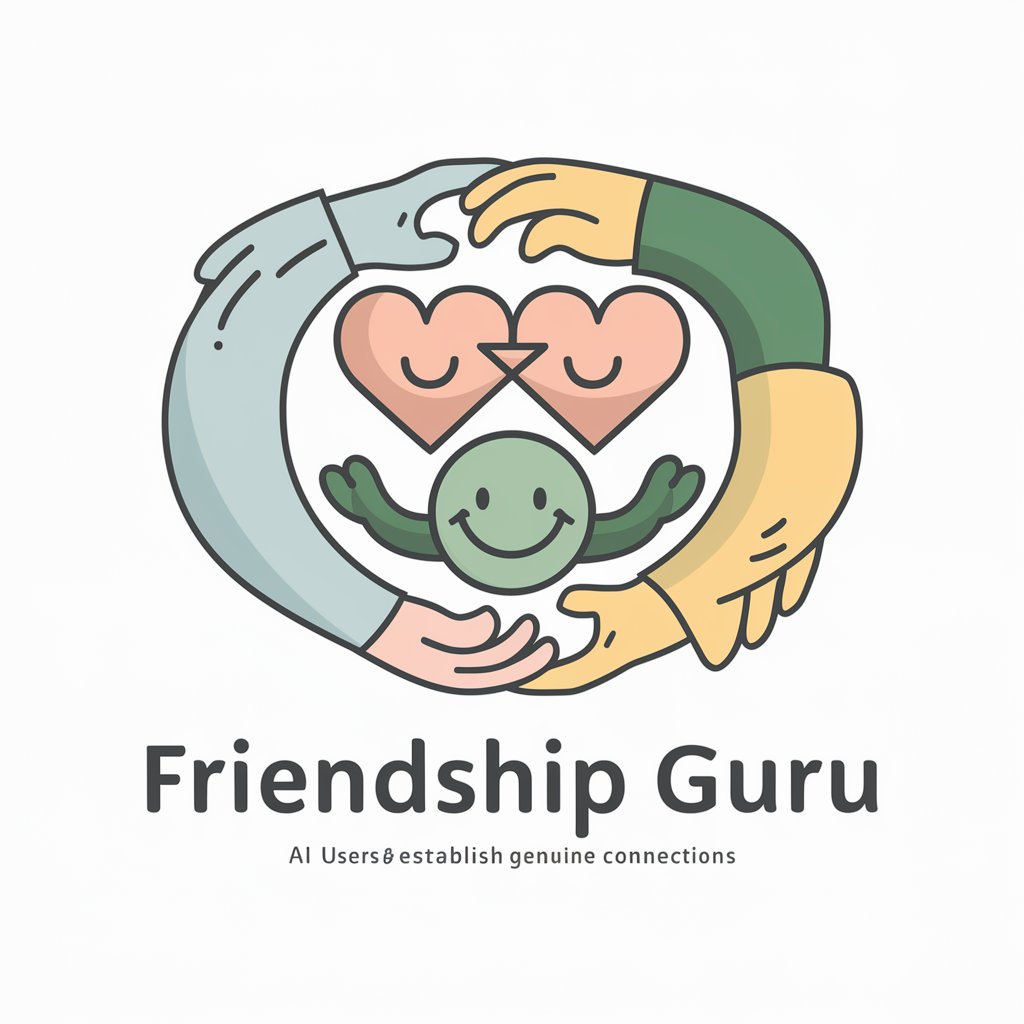
Persuasion & Friendship Expert
Master Social Dynamics with AI

Friendship
Empowering friendships with AI-powered empathy
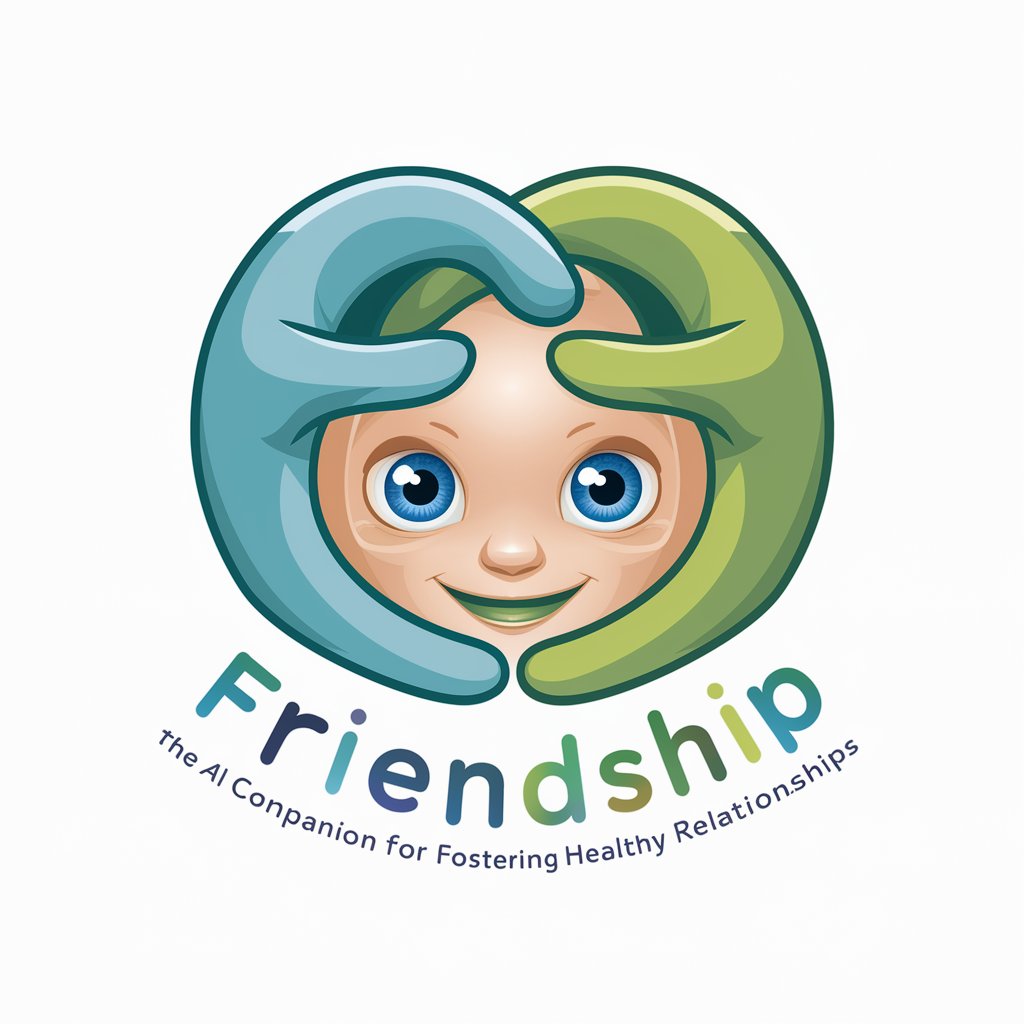
Friendship Scientist
Turning strangers into friends, one step at a time.

Frequently Asked Questions About Friendship Coach
How can Friendship Coach help improve my existing friendships?
Friendship Coach offers personalized advice on nurturing your existing relationships, focusing on open communication, empathy, and understanding. It suggests practical steps for deepening connections and resolving misunderstandings, emphasizing the importance of shared experiences and active listening.
Can Friendship Coach help me make new friends?
Yes, it provides strategies for meeting new people and forming meaningful connections, including tips on where to find potential friends with similar interests and how to initiate conversations. It also offers guidance on being open and approachable, making a positive first impression.
What should I do if I'm facing a conflict with a friend?
Friendship Coach advises on resolving conflicts through empathy, open communication, and understanding the friend's perspective. It emphasizes the importance of honest conversations about feelings and needs, finding common ground, and working together towards a solution.
How does Friendship Coach address toxic friendships?
It helps identify signs of toxic relationships and provides advice on setting boundaries or deciding when it might be healthier to let go. It encourages self-reflection on what you value in friendships and offers support in making difficult decisions.
Can Friendship Coach assist with social anxiety?
While not a substitute for professional therapy, it offers tips for managing social anxiety, such as practicing self-compassion, preparing for social interactions, and starting with small, manageable social engagements to gradually build confidence in social settings.
